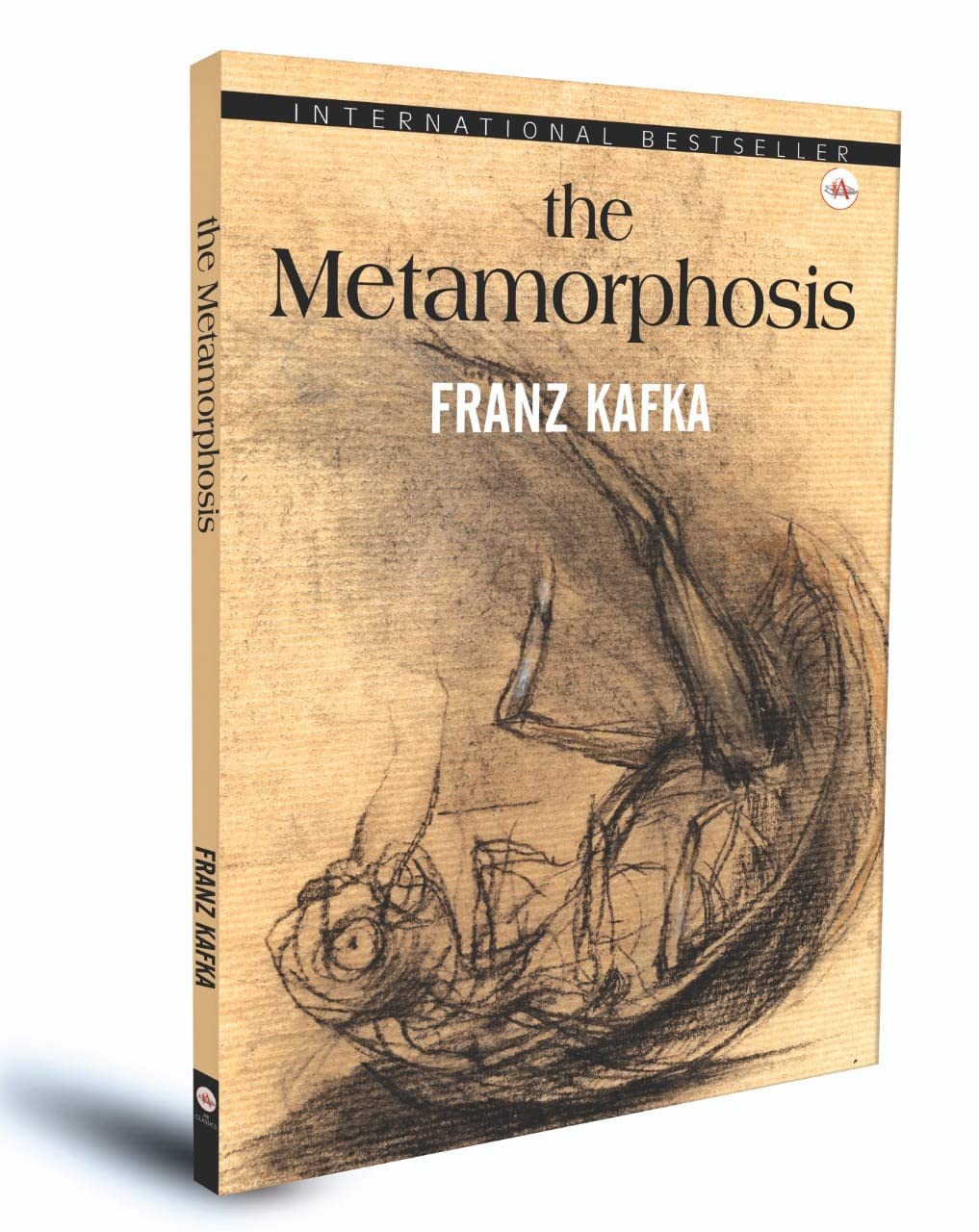Metamorphosis – by Franz Kafka
Secure Checkout with Amazon!
- Top-Rated Books
- Readers Satisfaction
- Verified Customer Reviews
Description
Metamorphosis by Franz Kafka is a deeply symbolic and existential work that delves into the alienation and psychological turmoil of its protagonist, Gregor Samsa. One morning, Gregor wakes up to find himself transformed into a gigantic, insect-like creature. This transformation, bizarre and grotesque, sets the stage for the novella’s exploration of themes such as identity, human relationships, and the crushing weight of societal expectations.
Gregor’s initial reaction to his transformation is not one of horror at his new form but concern about missing work. This reflects Kafka’s keen observation of the dehumanizing nature of work and the pressures of modern capitalist society. Gregor, before his transformation, was the sole breadwinner for his family, dutifully fulfilling a role that had stripped him of any personal desires or autonomy. Even as an insect, his primary worry is disappointing his boss, indicating how deeply ingrained his sense of obligation has become.
As the story progresses, Gregor’s family reacts with a mixture of shock, repulsion, and eventual indifference. Initially, they attempt to accommodate him, though with great difficulty. However, as Gregor’s condition worsens and his ability to communicate diminishes, his family becomes increasingly detached. They start to view him as a burden rather than a loved one. His sister, Grete, who initially shows some compassion by feeding him and cleaning his room, eventually grows tired of her role and pushes for his removal from the house. This evolution highlights the fragility of familial bonds when faced with hardship and inconvenience, as well as the conditional nature of love and support.
The transformation into an insect can be interpreted as a metaphor for Gregor’s emotional and social alienation. Even before his physical metamorphosis, Gregor was metaphorically trapped in a life he did not choose—stuck in a monotonous job that provided little satisfaction but was necessary to support his family. His transformation amplifies this sense of isolation, as he is now physically unable to interact with the world in a human way. The insect body, with its grotesque appearance and inhuman movements, represents the culmination of Gregor’s feelings of worthlessness and disconnection from society.
Kafka’s work also touches on themes of existentialism. Gregor’s situation forces him to confront the absurdity of life—his transformation lacks any clear cause or explanation, much like the arbitrary nature of suffering in human existence. There is no grand meaning or reason for Gregor’s transformation, just as there is no inherent meaning in the challenges and difficulties people face. Kafka presents a bleak view of existence, where individuals must navigate a world that is indifferent to their suffering.
The lack of communication between Gregor and his family mirrors the deeper theme of the breakdown of meaningful human connection. Although Gregor still retains his human thoughts and emotions, he can no longer speak or express himself in ways his family understands. This inability to communicate is symbolic of the emotional distance that grows between people when their needs and desires diverge. Gregor’s family, particularly his father and sister, represent the societal expectation to conform to specific roles—whether as a worker, a provider, or a family member. When Gregor can no longer fulfill his role as the provider, his value to the family diminishes, leading to his further isolation.
Another layer of interpretation concerns Gregor’s physical space within the household. Over time, he is confined more and more to his room, symbolizing how his transformation gradually erases his presence in the family’s life. The more he withdraws, the more they reorganize their lives without him, eventually using his room for storage and treating him as an afterthought. This shrinking physical and emotional space mirrors the shrinking empathy and concern his family shows for him, culminating in their final decision to be rid of him altogether.
Kafka’s narrative style, with its calm, almost matter-of-fact tone, contrasts starkly with the bizarre nature of Gregor’s transformation. This creates a surreal and unsettling atmosphere, where the reader is invited to accept the absurd premise as normal, just as Gregor does. This stylistic choice is crucial in driving home the novella’s themes—it forces the reader to focus less on the “how” or “why” of the transformation and more on the emotional and psychological implications for Gregor and those around him.
The ending of Metamorphosis is both tragic and revealing. Gregor, weakened by neglect and rejection, finally dies. His family, rather than mourning, feels a sense of relief. His death allows them to return to their normal lives, unburdened by the responsibility of caring for him. The family’s quick return to happiness, symbolized by their decision to move to a new apartment and start afresh, underscores the novella’s bleak view of human nature and the fleeting, conditional nature of familial ties and empathy.
In Metamorphosis, Kafka masterfully captures the tension between individual identity and societal roles. Gregor’s transformation is not just a physical metamorphosis but a manifestation of his internal suffering—his loss of self, agency, and connection to those around him. The novella speaks to the existential crisis many face in modern life, where one’s worth is often reduced to their function or role within a family, a workplace, or society at large. As Gregor’s story illustrates, when one can no longer fulfill that role, they risk becoming invisible, discarded by those they once held dear.
Ultimately, Metamorphosis is a poignant exploration of alienation, both personal and societal. It raises profound questions about identity, the nature of human relationships, and the crushing weight of societal expectations. Kafka’s use of the absurd, combined with his exploration of deep psychological and philosophical issues, makes this novella one of the most enduring and thought-provoking works of modern literature. Its themes continue to resonate, reflecting the struggles of individuals who feel trapped in roles that suppress their true selves, as well as the devastating effects of isolation and rejection.






Reviews
There are no reviews yet.